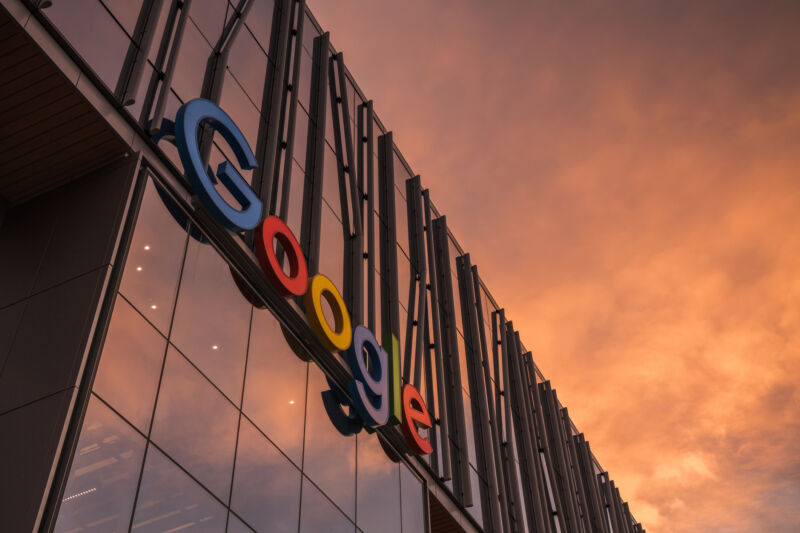Google’s ad tech dominance spurs more antitrust charges, report says

This week, the European Union (EU) is preparing to lob yet another formal antitrust complaint against Google, Bloomberg reported. Charges could come with massive fines for Google, as the EU’s European Commission follows in the US Department of Justice’s footsteps and starts pushing back against Google’s alleged advertising technology industry dominance.
The EU’s charges, referred to as statements of objections, could be announced by Wednesday, Bloomberg reported.
These latest charges come after Google spent years battling and frequently bending to the EU on antitrust complaints. Seeming to get bigger and bigger every year, Google has faced billions in antitrust fines since 2017, following EU challenges probing Google’s search monopoly, Android licensing, Shopping integration with search, and bundling of its advertising platform with its custom search engine program.
But ad tech drives most of Google’s revenue, Bloomberg reported, with its ad revenue comprising about 80 percent. And impressively, Google’s ad revenue has continued increasing, even as online advertising competition has become much stiffer, the policy research organization the Center for Strategic and International Studies reported. In 2022, Google’s ad revenue amounted to nearly $225 billion, Statista reported.
Speaking anonymously, people familiar with the matter told Bloomberg that the EU’s latest charges will “target the core” of Google’s ad tech business model.” One source told Bloomberg that this will become the “most significant” antitrust charge the EU has yet to throw at Google.
Google did not immediately respond to Ars’ request to comment.
Why is Google’s ad tech under fire?
Earlier this year, the US Department of Justice (DOJ) announced that it had “filed a civil antitrust suit against Google for monopolizing multiple digital advertising technology products.” That lawsuit alleged that “Google monopolizes key digital advertising technologies,” which “website publishers depend on to sell ads and that advertisers rely on to buy ads and reach potential customers.”
Google maintains its dominance because “it’s able to collect data allowing advertisers to target ads, as well as sell ad space and provide the technology that allows for advertisers to find publishers to sell their space,” Bloomberg reported.
By April, 17 states had joined the DOJ’s lawsuit. Doha Mekki, the principal deputy assistant attorney general of the DOJ’s Antitrust Division, said this partnership was necessary “to end Google’s long-running monopoly in digital advertising technology markets.” Their complaint argued that:
“One industry behemoth, Google, has corrupted legitimate competition in the ad tech industry by engaging in a systematic campaign to seize control of the wide swath of high-tech tools used by publishers, advertisers, and brokers, to facilitate digital advertising. Having inserted itself into all aspects of the digital advertising marketplace, Google has used anticompetitive, exclusionary, and unlawful means to eliminate or severely diminish any threat to its dominance over digital advertising technologies.”
Less than two weeks later, Google lost its bid to wriggle out of the DOJ antitrust case before April ended, The Wall Street Journal reported. A trial in the DOJ’s lawsuit is anticipated to start in March 2024, Bloomberg reported.
There is also an ongoing investigation of “suspected anti-competitive conduct by Google in ad tech,” which was launched by the United Kingdom’s Competition and Markets Authority in May 2022.
Now, the EU is preparing the next attack on Google’s ad tech dominance. According to Bloomberg, the EU has been probing Google’s ad tech practices since 2021.
One potential outcome of any of these complaints could be a mandate to break up Google’s lucrative ad tech business.
Because its ad tech business is so valuable, Google will likely fight the EU charges when they’re announced, which could reportedly happen by mid-week. Google has pushed back on every EU antitrust charge so far and is still currently fighting a record $4.1 billion fine for bundling search with Android, Bloomberg reported.
https://arstechnica.com/?p=1947247